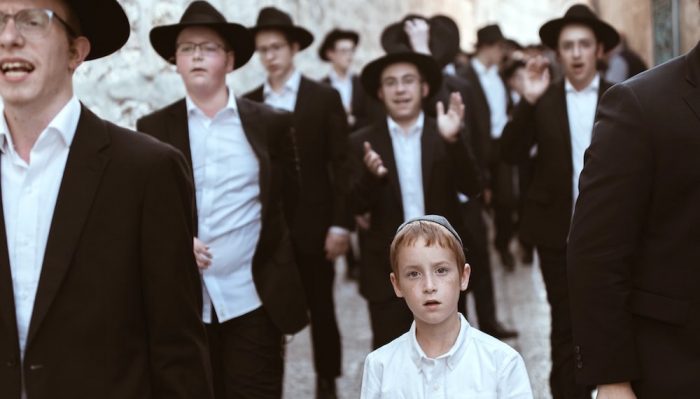When I returned home from a visit to Palestine last August, I had concerns about being completely honest as to where I had been.
When people asked about my trip, it felt easier to simply say I had been to Israel, with no mention of Palestine.
Officially, that was the truth—but that wasn’t the truth for me. It didn’t sit right with me to not talk about it, but it is hard to explain to someone who is not familiar with the situation exactly what is happening. Like Schrödinger’s cat, Palestine both exists and doesn’t exist at the same time.
Zionist supporters claim that Palestine, a former territory of Greater Syria, was never a “modern” state and therefore does not exist.
Without a state to call home, Palestinians are denied their very identity. After Zionists took the land in 1948, the Palestinians living on the land, who were forced off or fled because of danger to their lives, became displaced Arab refugees in the eyes of the international community. But that begs the question, if Palestine did not exist, where had the Palestinian people been displaced from?
Historian Naseer Aruri has written that, “The fact that Israel was born in the sin of dispossession of other people has never been seriously acknowledged in public discussion.” This is particularly true in the United States, where there is strong support for Israel in the form of billions of tax dollars each year.
Historian Kathleen Christison has said, “For the vast majority of Americans, including the reasonably well informed, Palestinians never had a history.” Christison recounts a story in which a United States senator asked a Saudi official, “Where on earth [had the] Palestinians come from to begin with?” This erasure has been enabled by the silence around their story.
Palestine, with its capital in Jerusalem, lies at the heart of the three great monotheistic religions: Judaism, Christianity, and Islam. One can find locations that mark the birthplace of Jesus, his crucifixion, and other places of biblical importance, a place so important that millions of people make pilgrimages each year. Yet ironically, some of these places do not exist as far as Google maps are concerned. Trying to navigate around Bethlehem, using the popular map application is useless; the roads are simply not there. Google has erased Palestine.
Today, on American college campuses, the erasure of Palestine continues. In December of 2019, President Trump signed an executive order intended to combat anti-Semitism on college campuses. The order allowed the administration to define Judaism as a race or nationality rather than simply a religion. This order grants broader authority to the Department of Education to respond to anti-Semitic incidents on college campuses.
According to the Anti-Defamation League (ADL), anti-Semitism is “a form of prejudice or discrimination directed toward Jews as individuals or as a group. Anti-Semitism is based on age-old stereotypes and myths that target Jews as a people, their religious practices and beliefs, or the Jewish State of Israel.” On the surface, it is hard to argue against the need to combat all anti-Jewish activities and events. But unfortunately, intents and outcomes are not always the same.
In defining anti-Semitism, Trump’s order adopted the International Holocaust Remembrance Alliance’s definition of anti-Semitism, which considers certain criticisms of Israel to be anti-Semitic. This definition rightly singles out anyone who denies the holocaust. But it also includes anyone who delegitimizes the state of Israel, or denies the Jewish people their right to self-determination. But this puts it at odds with those who support the rights of the indigenous people of the land.
It seems that self-determination for Israelis comes at the expense of self-determination for Palestinian Arabs, some of whom are also Jewish. What are we to do when the legitimization of one group necessitates the delegitimization of another? Or when one nationalism is pitted against another nationalism and the only solution seems to be that one must go away?
Zionism is a nationalist, 19th-century political ideology that emerged at a time when Jews faced one of the worst atrocities that humans can commit against one another: genocide. At the time, many Zionists saw Palestine as security, a place to form their own national state to provide safety for all Jewish people. Unfortunately, in doing so, many Zionists did not see a way in which the existing population could remain on the land.
Yosef Weitz, the head of the Jewish Agency’s Colonization Department, wrote in his diary on December 20, 1940, “It must be clear that there is no room for both peoples together in this country. We shall not achieve our goal if the Arabs are in this small country. There is no other way than to transfer the Arabs from here to neighboring countries—all of them… Not one village, not one tribe should be left.”
These types of things are always difficult to talk about. But just because they are difficult does not mean these conversations should not happen. Questions about human rights must be addressed.
In France, parliament recently passed a resolution equating anti-Zionism with anti-Semitism. Criticism of Zionism is all too often equated with anti-Semitism. Yet from its very inception, many Jews, such as prominent Rabbi Judah Magnes, opposed the growth of Zionism.
Today, Jewish Voice for Peace fights for Palestinian rights to be heard. Their website states,“We know that opposing Zionism, or even discussing it, can be painful, can strike at the deepest trauma and greatest fears of many of us.” Yet, they argue, it is a discussion that needs to happen.
Perhaps the healing of trauma comes from confronting fear and seeking to discover what lies underneath. Can we create space for compassion, empathy, and shared humanity? It is my hope that we can, even in a story as painful as this one.
But healing does not come from burying a trauma, or covering one trauma up with another. Healing does not come out of erasing a story from memory.
Yet even before I left Palestine last summer, I too began to erase it. The erasure began when I left Beit Sahour.
As I drove past the Israeli checkpoint into Jerusalem, I put on the face of an American tourist visiting Israel. The night before my flight back home, I deactivated my Facebook account, deleting photos from my phone, tearing up handwritten notes I had taken. I hid souvenirs at the bottom of my suitcase, hoping security would not find the bracelet with the Palestinian flag I bought at the refugee camp.
As I checked in for the flight, they asked me questions:
What was the purpose of your visit? Pilgrimage.
Who did you meet? No one, I don’t know anyone here.
What places did you visit? Religious sites.
What was your favorite place to visit? Tel Aviv.
Why? Beaches.
Did you meet anyone? No.
Don’t lie, I told myself. I didn’t have to lie. But I did, and in doing so felt the guilt of denial.
I wanted to say I met wonderful people who cooked for me and shared their homes with me. I met children who danced the dabke and let me dance with them. I met young musicians who sang songs about freedom and return. I witnessed the trauma of generations of children living in the refugee camps of Aida and Dheisheh. I saw Israeli soldiers, barely older than children themselves, standing guard in high towers watching over men, women, and children walking through checkpoints. I saw mothers of political prisoners mourning for their lost children, who are still alive, but whom they cannot visit. I saw so much that I don’t know where to begin.
But I know I must begin, and that it starts right here. It seems that the world has decided that if we don’t speak about the Palestinians, we can forget them. If we don’t see the people as human, we can ignore their plight.
So I will continue to press the question, Can I talk about Palestine? Can we talk about Palestine?
It feels like the answer is maybe—but be very careful.












Read 0 comments and reply